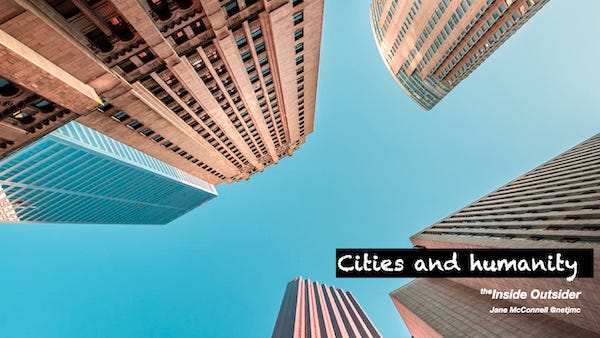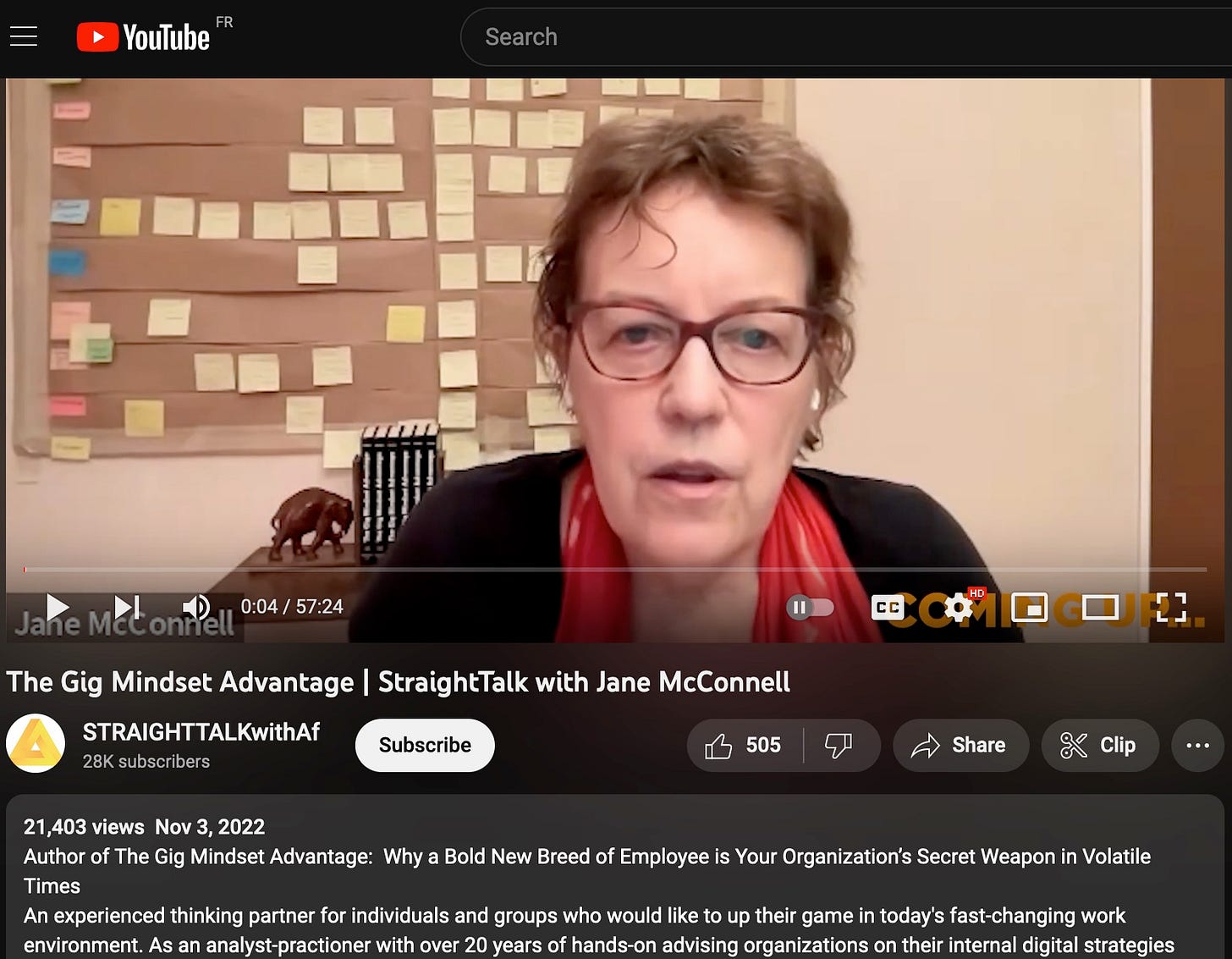Cities, StraightTalk, WhatsApp in Senegal, nimbler higher ed, Afrofuturism=our futurism
A selection of articles that relate to different dimensions of the future in cities, Africa, higher education and architecture.
What I’ve been up to
Writing about cities and urban life
There’s a lot to say. I started by looking at data from my Future 2043 survey. My recent issue of Inside Outsider is “Cities are growing. Is that a good thing?” Things I wonder about: How do cities and people influence each other? Would you rather live in a favela or in a suburb? Tell me what you think, and see a few numbers from the Future2043 survey (which is still open for 10 days.)
Photo: Jorge Vasconez, Unsplash
The Gig Mindset Advantage, one of the top StraightTalks with Af Malhotra
I was delighted to see that my conversation with Af Malhota on his innovative podcast StraightTalkwithAf is one the of top episodes at over 21,000 views. See here on YouTube.
Talking straight with Af is fun. He jumps into unexpected angles and makes you really think! A true straight talking interviewer. Af is into a diversified range of important activities: dystopia/utopia in digital, climate, diversity & wellness. Check him out.
Food for thought
WhatsApp voice notes are revolutionizing farming in Senegal
Many farmers in Senegal cannot read or write, and thanks to WhatsApp now have an essential tool for interacting with each other and with agricultural experts. Farmers, researchers, and NGOs ise WhatsApp as a source of information and a tool for collaboration - all in voice. You’ll find examples in the article that show how information and collaboration change lives. One example is when Russia invaded Ukraine and the price of fertilizers increased dramatically, the network of people on the WhatsApp exchanged ideas including how to create a potent homemade fertilizer. Lives were not only changed. They were saved in a country that struggles with food insecurity.
Photo: Daniel Zender for Rest of World
Rest of World is news site that I check every day. It is what it says. It shares global tech news stories about the rest of the world, sharing information and actions from places that are usually ignored by major media in the “developed” Western world. Bookmark it, and check it out regularly. You’ll be amazed by what you find.
This article was originally published by Rest of World, a nonprofit newsroom covering the effect of technology outside the West. Author: Jack Thompson
https://restofworld.org/2023/whatsapp-voice-notes-farming-senegal/
Could my geology teacher hold down a job today in an American university?
He taught us how to think and question what teachers told us.
Photo: Dan Mayers, Unsplash
My geology teacher from my university days in Arizona many decades ago is someone I have never forgotten. He based all his courses on asking us questions. Non-stop for two straight hours, twice a week. We suggested answers and he always followed up with another question. If no one responded, he then rephrased the original question from a different angle. He did no top-down talking.
Although I have now been living in Europe for well over half my life, I follow what’s happening in the US extensively as I have family there. Seeing the news on television about the influence of politics and parental preferences on teachers, I think this outstanding teacher would not do well there today.
Stackable credentials open the door to new career opportunities
Higher ed must become nimbler
Photo: Pexels, Riccardo
From Wiley:
“According to Strada Center for Education and Consumer Insights, micro-credentials are the education avenue of choice for many Americans looking to upskill. Employers have specific needs, and it’s hard to find trained workers. Some find that the degree model has not produced job-ready talent, so organizations feel they must create their own programs to recruit, train, and place talent within their own ranks.
As businesses seek to improve employee skills and diversity, micro-credentials allow them to bypass universities and confer their own qualifications. This bold move indicates that those in higher ed must rethink their credentialing systems and become nimbler in their approaches.”
Rethink higher education
From Brookings:
“Even before the pandemic, many community college students completed two or more credentials—referred to as “stacking” credentials. For example, a student might complete a short-term certificate in cyber security one term and later return to apply some of those credits to earn an associate degree in information systems technology. The short-term certificate enables the graduate to immediately gain work experience in the field and the second credential helps them advance along that career ladder.”
Building for a better future
An Afrofuturist Architect Builds for a Better Future
I entitled this “Afrofuturism=Our futurism” in the title because the practices reflected here will very likely become more common as architects and designers adapt to our new world of life-threatening heat.
Photo: Pexels Cottonbro Studio
From Wired:
Growing up in rural West Africa, Diébédo Francis Kéré and his friends would build makeshift shelters from clay, tree branches, and leaves when they got caught in the rain away from home. Decades later, in 1999, he returned home to Burkina Faso as an architecture school student to build a school in his hometown of Gando, thinking he was unlikely to ever find a job.
With light streaming in, passive ventilation, and walls made from bricks pressed from clay and concrete, that school was recently recognized by The New York Times as one of the most important buildings constructed since World War II.
Kéré is part of a movement that bases architecture on local communities, resources and sustainability. Read the interview in the Wired article to understand more how this movement will (in my opinion) reshape cities. There’s also a photographic panorama of Kéré’s work.
Please share your thoughts in the comments below, or drop me a note on netjmc.com.









